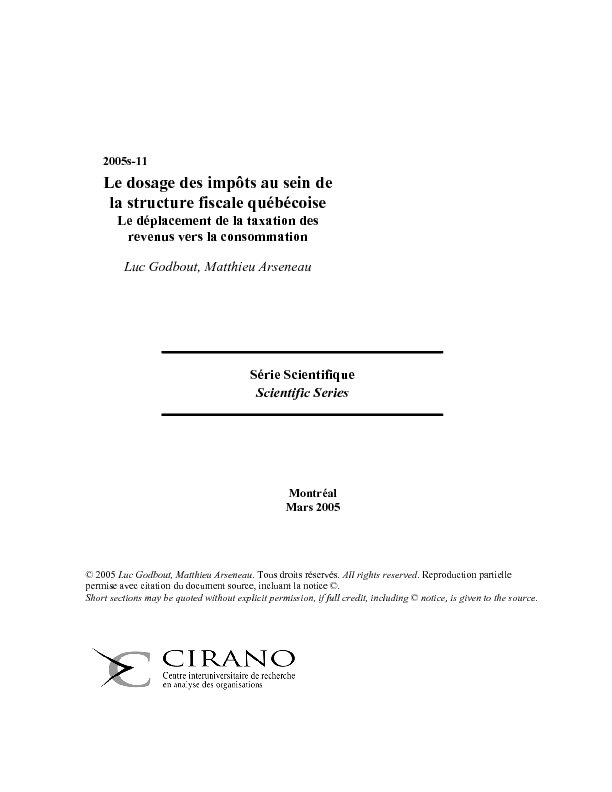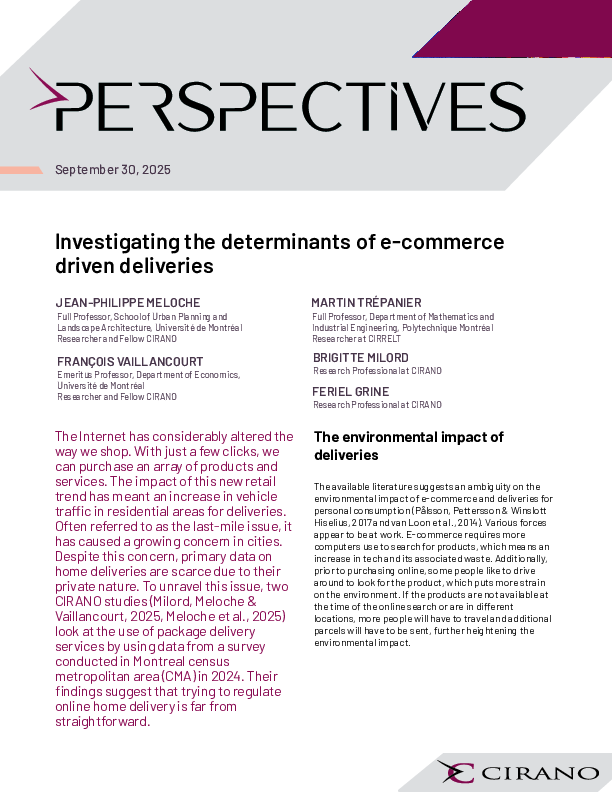Le dosage des impôts au sein de la structure fiscale québécoise
Le déplacement de la taxation des revenus vers la consommation
This paper analyses the effect of a tax mix modification. More precisely, the authors assess the relevance of increasing consumption taxes and at the same time decreasing income taxes. Several arguments in favour of modifying the tax mix are analysed such as its impacts on savings, on labour supply and on tax compliance. While the Quebec government has recently modified its tax mix, the authors observe that it still relies more on income taxes, compared to the OECD countries average. However, comparative analysis data does not show any tendencies concerning the modification of the tax mix in developed countries. In fact, the reduction of income taxes observed in the analyzed countries is much more the consequence of a desire to decrease the tax burden rather than a desire for a modification of the tax mix. In this context, if the Quebec government is going to go forward with a tax mix reform, the authors suggest a moderate reform since the consumption tax rate is already one the highest in the region. Thus, they recommend the abolition of the tax exemptions concerning particular goods and services adopted coupled with an increase of the tax credit so as to compensate for the negative impact on the personal finances of2 poorer taxpayers.
[ - ]




